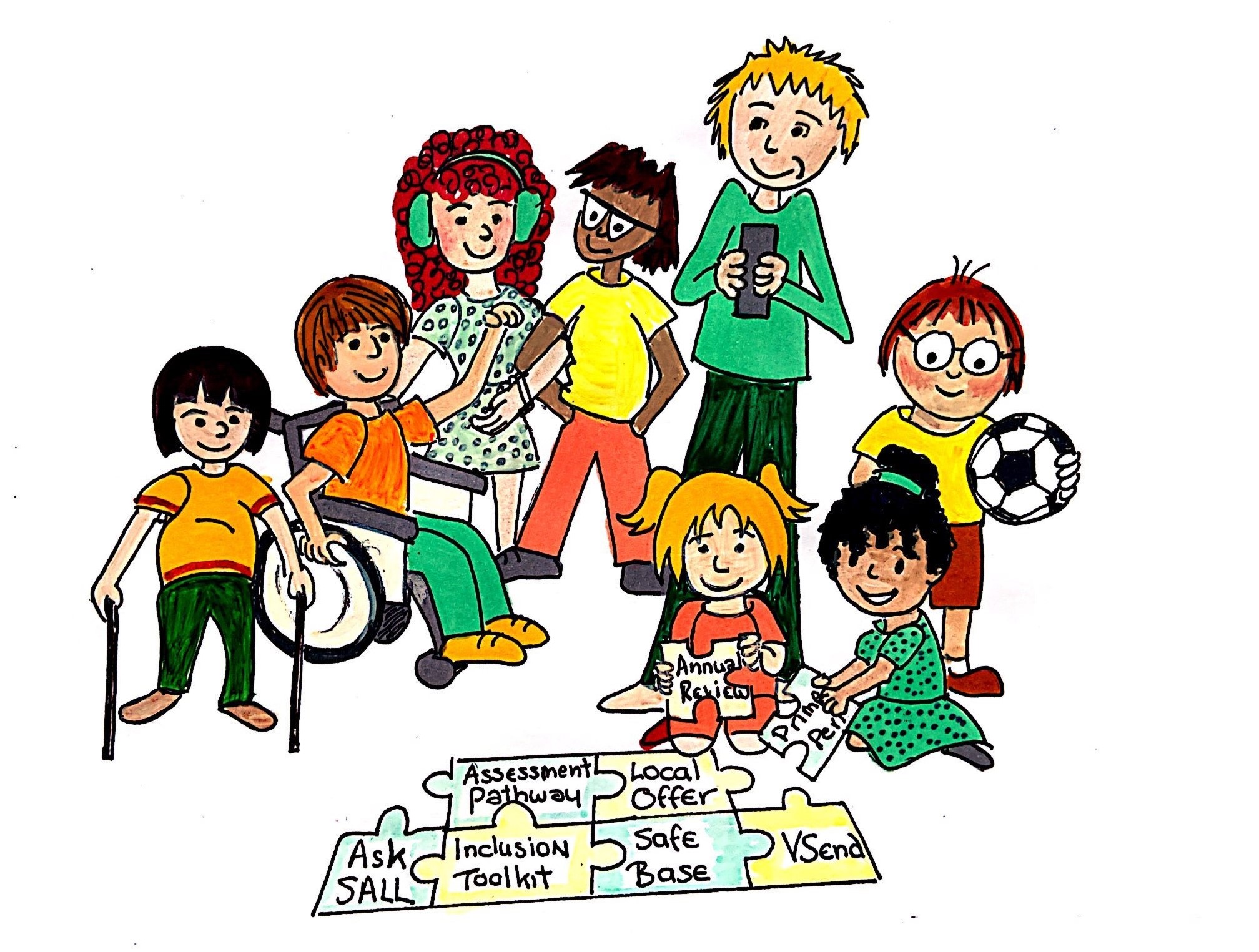Level 7-10 strategies to support highly specialised interventions
High quality teaching, targeted and specialist strategies, approaches and adaptations for pupils should be implemented and supplemented
0-5
- approaches that place a high emphasis on finely graded and practical tasks which provide opportunities for frequent repetition and reinforcement
- identified specialist skilled individual support across the curriculum
- intensive use of key-working approaches to ensure the child has a trusted adult to offer support, withdrawal or time to calm down during vulnerable times
- personalised reward systems known to all staff who have contact with the child, implemented consistently across the curriculum
- time-limited intervention programmes with familiar staff who have knowledge, skills and experience to address the child’s specific needs, may include withdrawal or time to calm down
- access to resourced provision on or off site
- mental health - planned programmes of intensive therapeutic intervention involving multi-agency approaches. Consideration given to an environment that ensures the safe emotional well-being and development of the individual
- regular access to appropriately trained support
- there is a specialist Integration pathway which can support settings to support children with particular behavioural difficulties. Please contact your early years specialist teacher to discuss this with them
- at levels 9-10, the child is accessing special Social Emotional and Mental Health provision, where appropriate
5-16
Behaviour for learning
- the pupil is supported in mainstream activities that they do attend
- off-site activities, meet and greet, delayed start time, adjustment to access arrangements
- at secondary, this may look like home learning tutoring or e-learning platform usage outside of the physical school environment
- access to a completely bespoke timetable, designed to mitigate possible triggers which leads to increased success with regard to engagement, access and resilience
- the pupil is taught for a significant amount of the time in small groups or individually outside of the mainstream curriculum and away from the mainstream class, where they are able to experience success supported by a member of staff.
Social skills
- planned opportunities are provided for the pupil to be included with peers where the pupil is able to experience success
Emotional regulation and self-regulation
- planned programmes of intensive therapeutic intervention involving multi agency approaches
- the pupil has access to key 'safe' staff with experience and training in meeting the needs of students with SEMH, working on modified holistic curriculum tasks and key skills – including structured interventions as advised by external agencies
General
- daily implementation of approaches towards meeting the individual’s SEMH targets which have been identified through the use of appropriate assessment data, e.g. Boxall, SDQ
- access to specialised SEMH provision – alternative provision, therapeutic support services, counselling, vocational provision etc may be considered alongside advice from other agencies/ professionals
- there is agreement from outside agency professionals, local authority representatives and staff that the pupil requires access to specialist provision for their SEMH needs
- staff should consider and implement as appropriate
- a high staff: pupil ratio enabling access to a personalised holistic curriculum
- specific, specialist provision to target identified SEMH needs
- small group working with highly skilled staff
- planned opportunities to access specific individual programmes of support, where the pupil’s needs allow them to do so, are used to target particular outcome
- a placement or environment that ensures the safety of the individual and others
- requires constant therapeutic intervention and likely to require some hospitalisation with access to a range of appropriate multi agency support and strategies


